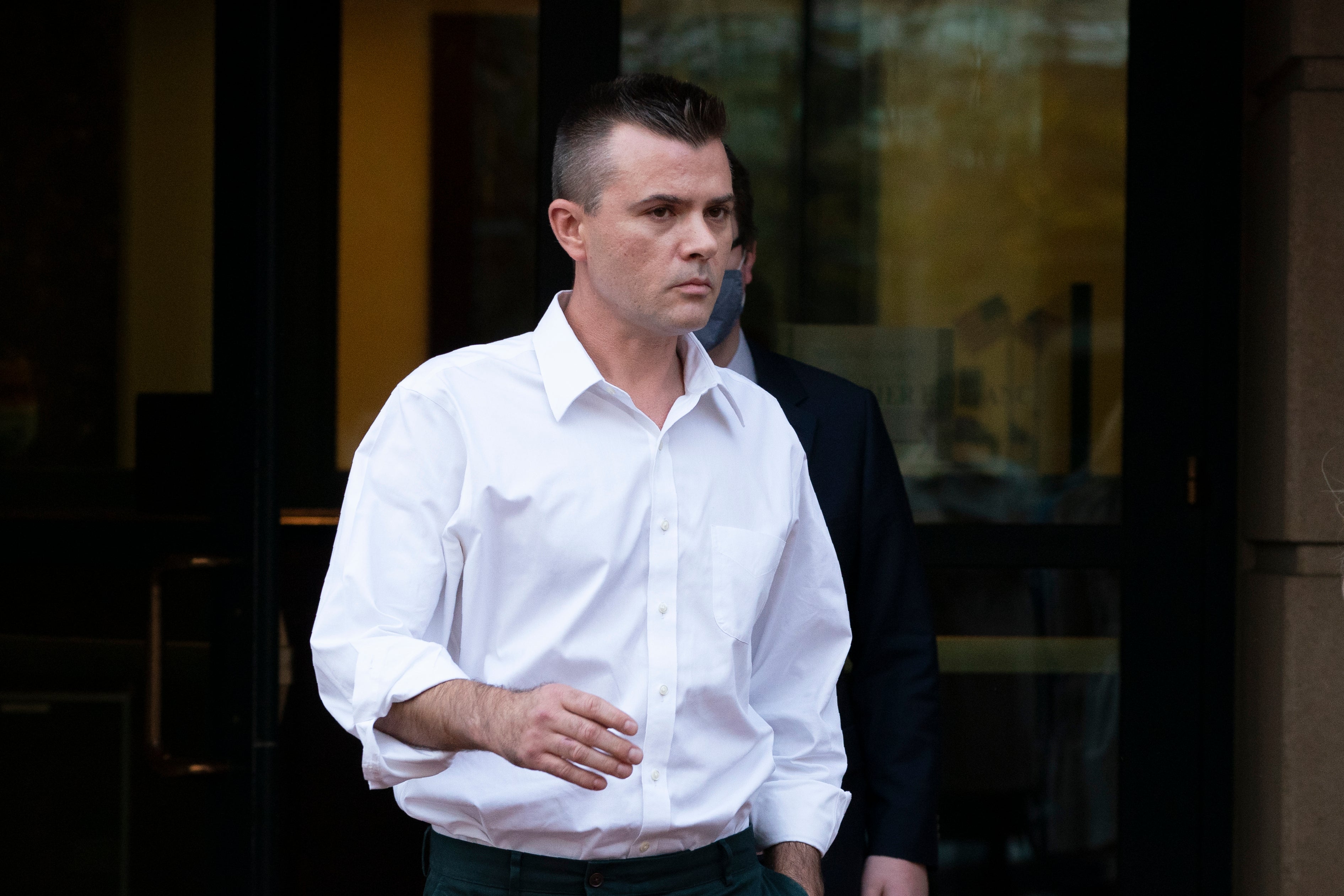Trump dossier source shocked speculation portrayed as fact
The primary source for allegations in a flawed dossier about former President Donald Trump told the FBI that he was shocked and dismayed that the speculative information he provided was portrayed as fact

Your support helps us to tell the story
From reproductive rights to climate change to Big Tech, The Independent is on the ground when the story is developing. Whether it's investigating the financials of Elon Musk's pro-Trump PAC or producing our latest documentary, 'The A Word', which shines a light on the American women fighting for reproductive rights, we know how important it is to parse out the facts from the messaging.
At such a critical moment in US history, we need reporters on the ground. Your donation allows us to keep sending journalists to speak to both sides of the story.
The Independent is trusted by Americans across the entire political spectrum. And unlike many other quality news outlets, we choose not to lock Americans out of our reporting and analysis with paywalls. We believe quality journalism should be available to everyone, paid for by those who can afford it.
Your support makes all the difference.A Russian-born analyst who provided the bulk of the information for a flawed dossier about former President Donald Trump told an FBI agent he was shocked and dismayed that the speculative information he provided was portrayed as fact, an agent testified Thursday.
FBI agent Kevin Helson is the second bureau employee to testify at the trial of Igor Danchenko, who's accused of lying to the FBI about his own sources for the information he passed on to British spy Christopher Steele.
The “Steele dossier” contained numerous allegations about connections between Trump's 2016 presidential campaign and the Kremlin, and also included allegations of salacious sexual activity that Trump supposedly engaged in at a Moscow hotel.
Prosecutors say Danchenko should have been more forthcoming about his own sources and that if he had done so, the FBI would not have treated the dossier as credulously as it did. As it turned out, the FBI used the allegations in the dossier to obtain a surveillance warrant against a Trump campaign staffer, Carter Page.
Helson, though, offered largely positive assessments of his interviews with Danchenko when he was cross-examined by Danchenko's attorneys. In that respect, Helson's testimony mirrored that of the first FBI witness, analyst Brian Auten, who contradicted the prosecution theory that Auten fabricated interactions with one of his supposed sub-sources, Sergei Millian.
Helson served as Danchenko's handler from 2017 through 2020, a time period in which Danchenko was a paid “confidential human source” for the FBI.
Helson said Danchenko was upfront from the start that the information he gave to Steele was mere rumor and speculation, and that he had no ability to corroborate it.
He also said Steele seemed to be telling the FBI in the months after the dossier was leaked and prompted a media frenzy that Danchenko's sourcing was more solid than Danchenko ever claimed it to be.
“Steele was really trying to prove it (the dossier), even during that time period, because he wanted it to be true. And that was putting pressure on Danchenko,” Helson said.
Danchenko is being prosecuted by Special Counsel John Durham, who was appointed by then-Attorney General William Barr to investigate any misconduct in the FBI’s investigation of the Trump campaign and its alleged ties to Russia. Danchenko is the third person to be prosecuted by Durham. It is the first of Durham’s cases that delves deeply into the origins of the dossier, which Trump derided as fake news and a political witch hunt.
Durham’s other two cases resulted in an acquittal and a guilty plea with a sentence of probation.
In the Danchenko trial, prosecutors say he lied when he told the FBI he obtained some of his information during an anonymous phone call from a man he believed to be Millian, a former head of the Russian-American Chamber of Commerce.
Prosecutors say Danchenko never spoke with Millian and that phone records show he never received an anonymous phone call at the time Danchenko claimed it occurred.
They also say Danchenko lied when he told the FBI he never “talked” with a man named Charles Dolan about the allegations contained in the dossier.
Defense lawyers say that Danchenko did receive a call, perhaps over an internet app, from someone he genuinely believed to be Millian, and that he was truthful when he said he never “talked” with Dolan about the information in the dossier because their relevant exchanges were over email.